As students navigate their educational journey, keeping track of their progress is essential for growth and motivation. An effective progress letter not only highlights achievements but also identifies areas for improvement, creating a constructive dialogue between educators and families. With the right structure and tone, these letters can inspire students to reach new heights while fostering a supportive learning environment. Curious to learn how to craft the perfect letter for student educational progress? Read on!
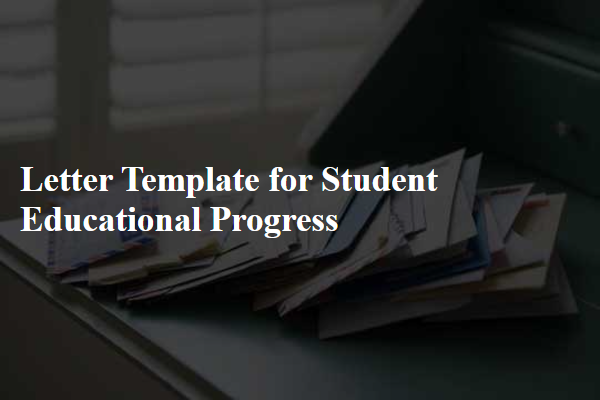
Student identification details
Student identification details include student name, unique identification number (often assigned by the educational institution), date of birth, grade level, and enrollment date. Additional information may encompass contact details for parents or guardians, address, and academic program of study. These elements are crucial for maintaining accurate records, tracking academic progress, and ensuring effective communication between the school and family. Educational institutions often use these details to tailor educational resources and support services to meet individual student needs.
Academic performance summary
The academic performance summary for students highlights key achievements and areas for improvement during the evaluation period. The report card, issued quarterly, showcases grades across various subjects such as Mathematics (average score of 85), Language Arts (average score of 78), and Science (average score of 90). Attendance records indicate 95% presence, reflecting strong commitment to education. Participation in extracurricular activities like the Science Fair at Riverside Middle School (winning second place) demonstrates engagement beyond the classroom. Standardized test results from the Spring 2023 assessment show a percentile rank of 92, indicating advanced proficiency in critical thinking and problem-solving skills. Areas identified for further growth include collaborative projects and time management skills, essential for academic success in future endeavors.
Attendance record
Consistent attendance plays a crucial role in the educational progress of students, significantly impacting their overall performance and engagement. A perfect attendance record often reflects commitment and dedication, while high percentages (90% or above) can correlate with improved academic outcomes and social interaction in school settings. School districts, such as Los Angeles Unified School District, emphasize the importance of attendance, as they often report that students who attend regularly are more likely to achieve higher grades in subjects like Mathematics and Language Arts. Additionally, attendance data acquired from systems like PowerSchool allows educators to identify patterns of absenteeism, which can lead to tailored interventions for at-risk students, ultimately enhancing their learning experience.
Extracurricular involvement
Extracurricular activities play a significant role in the holistic development of students, often fostering essential skills such as teamwork, leadership, and time management. Participation in school clubs, sports teams, or volunteer organizations allows students to engage with their peers in diverse settings, promoting social interaction and collaboration. For instance, joining a debate club can enhance public speaking abilities and critical thinking, while involvement in community service fosters empathy and civic responsibility. Furthermore, extracurricular activities provide valuable opportunities for students to explore personal interests, develop passions, and strengthen resumes for future academic pursuits, such as college applications. Through active engagement in extracurricular pursuits, students can gain a well-rounded educational experience that complements their academic achievements.
Teacher's comments and recommendations
Teacher feedback plays a crucial role in guiding students' academic growth and enhancing their learning experience. Detailed assessments highlight strengths such as strong participation in class discussions or demonstrated creativity in project work, crucial for maintaining engagement. Specific recommendations for improvement, like focusing on time management skills or seeking assistance in challenging subjects such as Mathematics, provide actionable steps for students. Setting measurable goals, like achieving a specific grade in upcoming assessments or completing reading assignments on time, can foster accountability. Monthly progress evaluations, including feedback sessions to discuss advancements and challenges, encourage open communication and ongoing development. Overall, structured teacher comments and tailored recommendations are pivotal in shaping a student's educational journey.

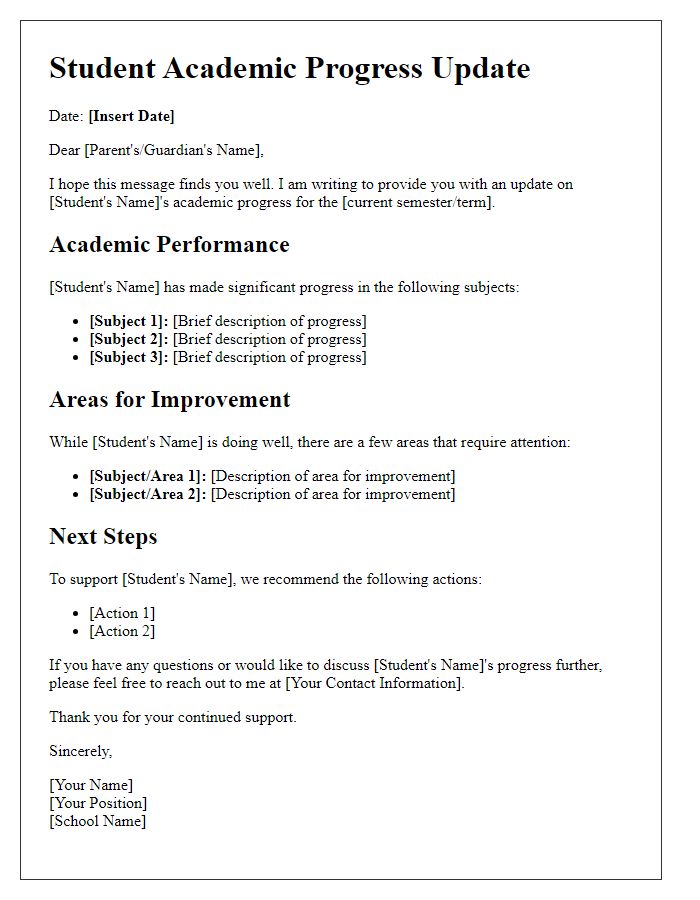
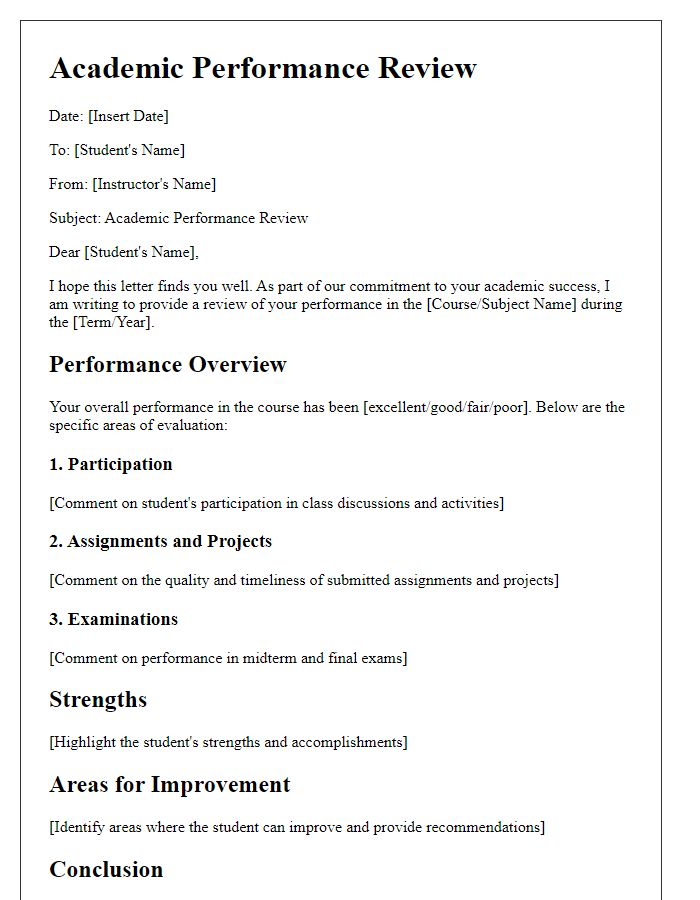
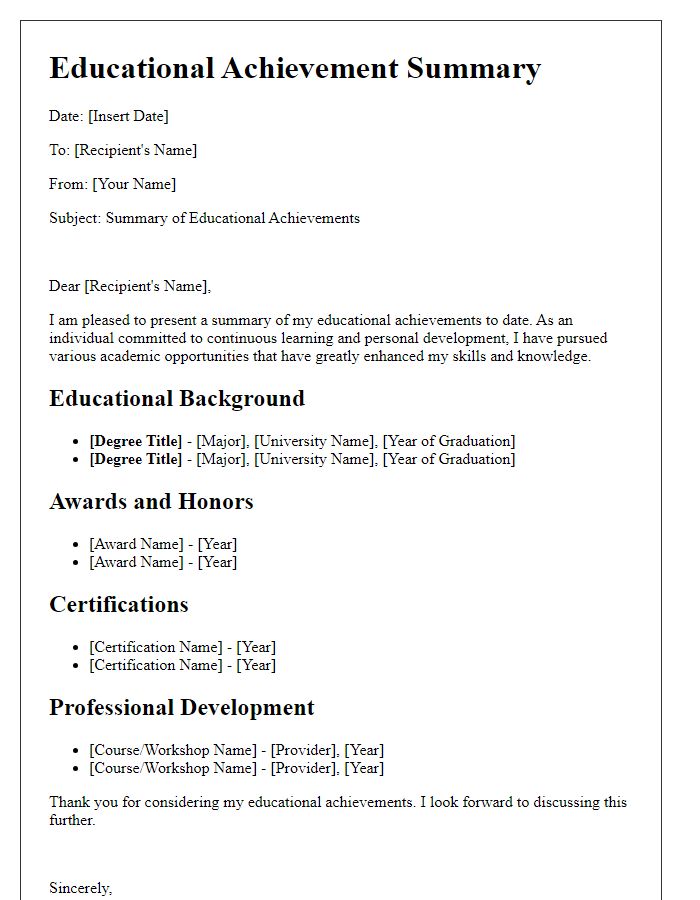
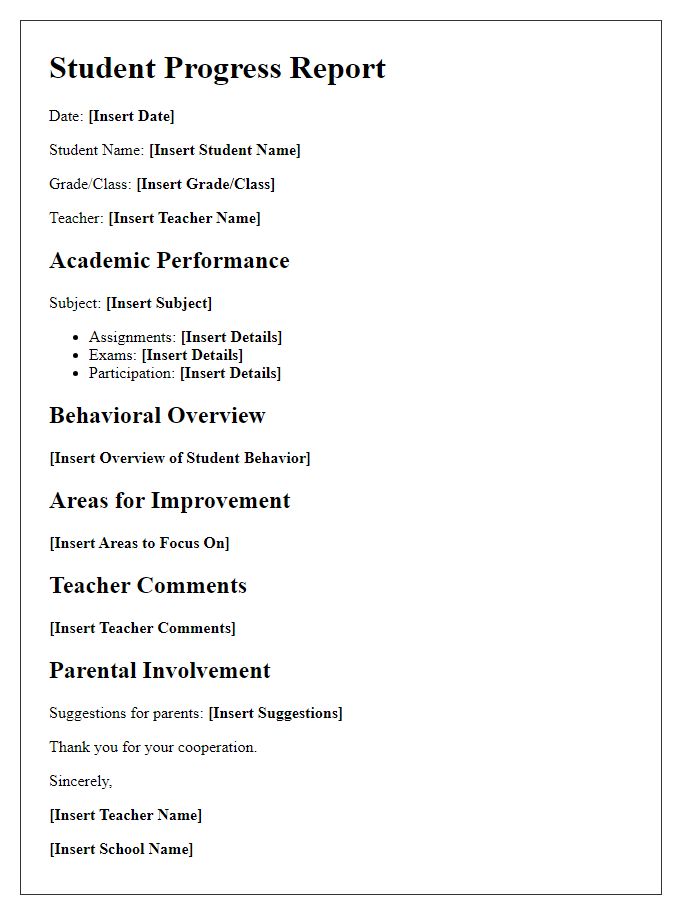
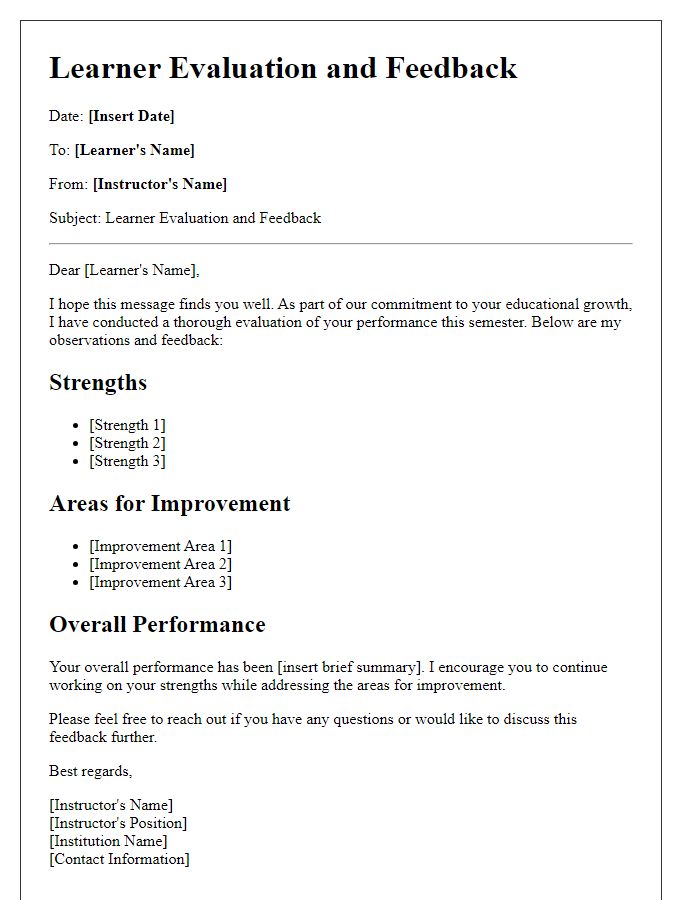
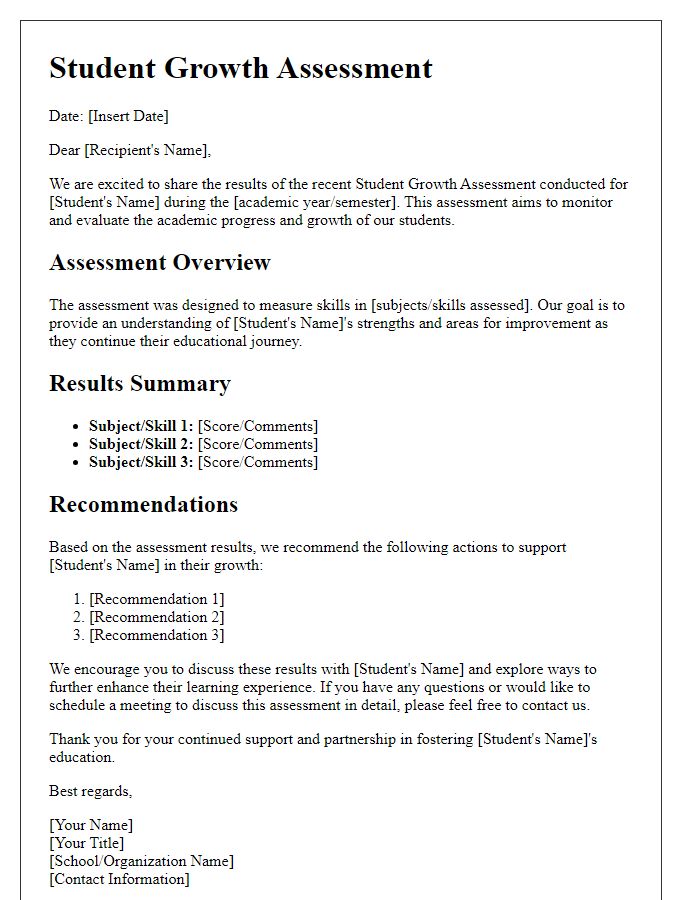
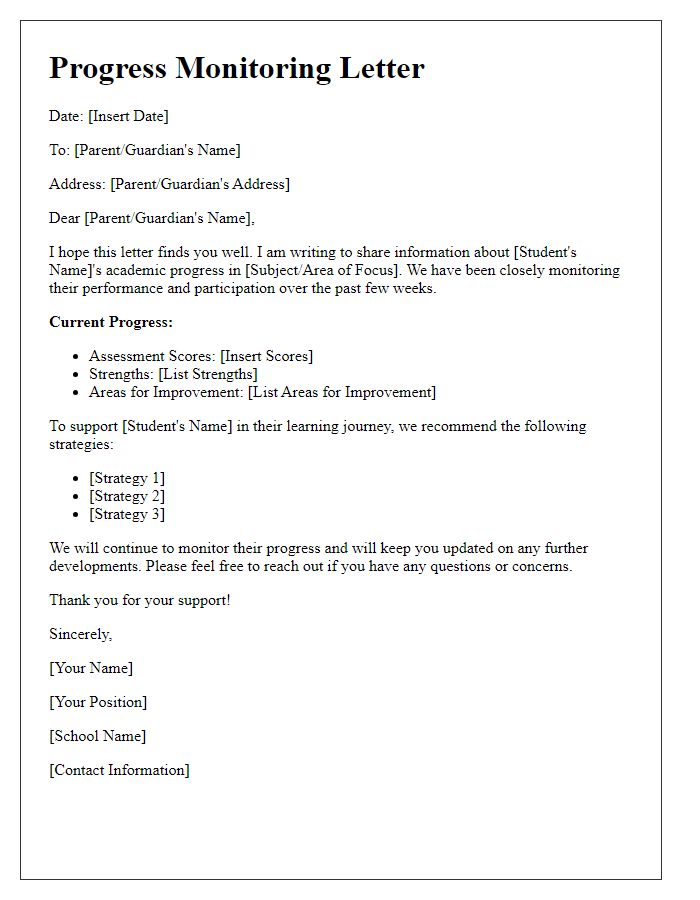
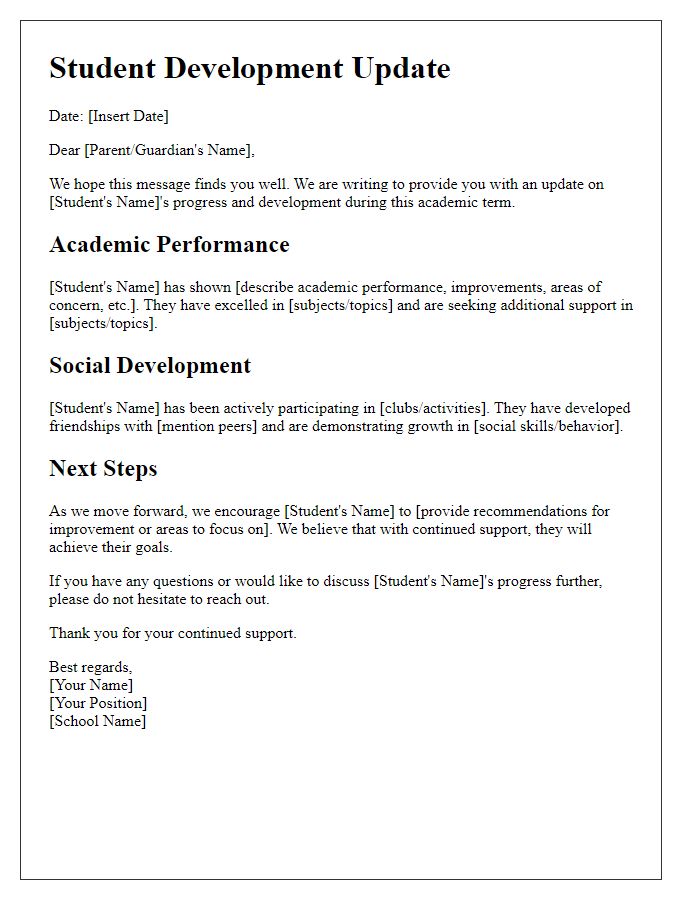
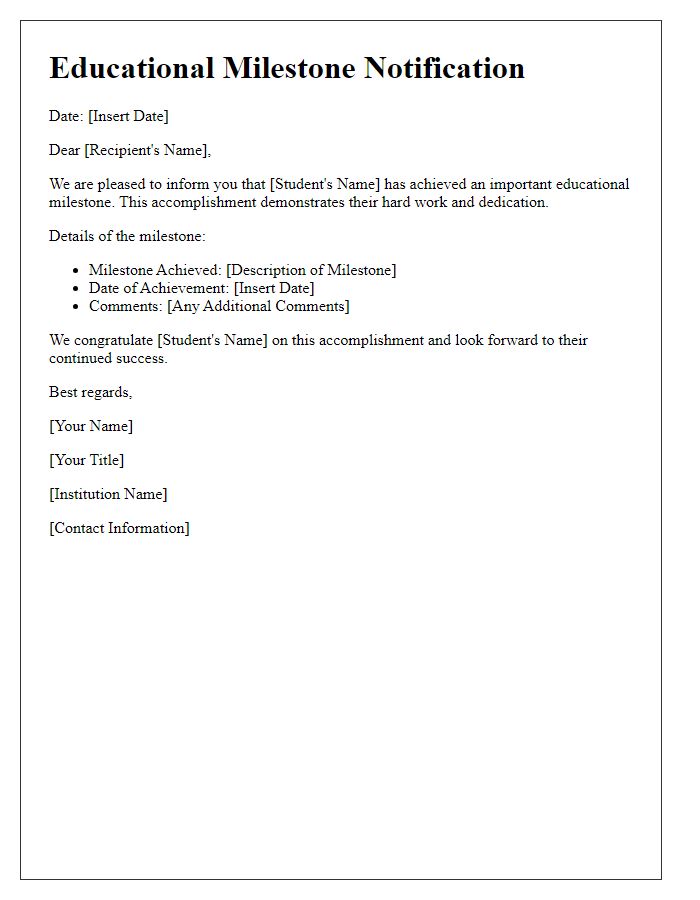
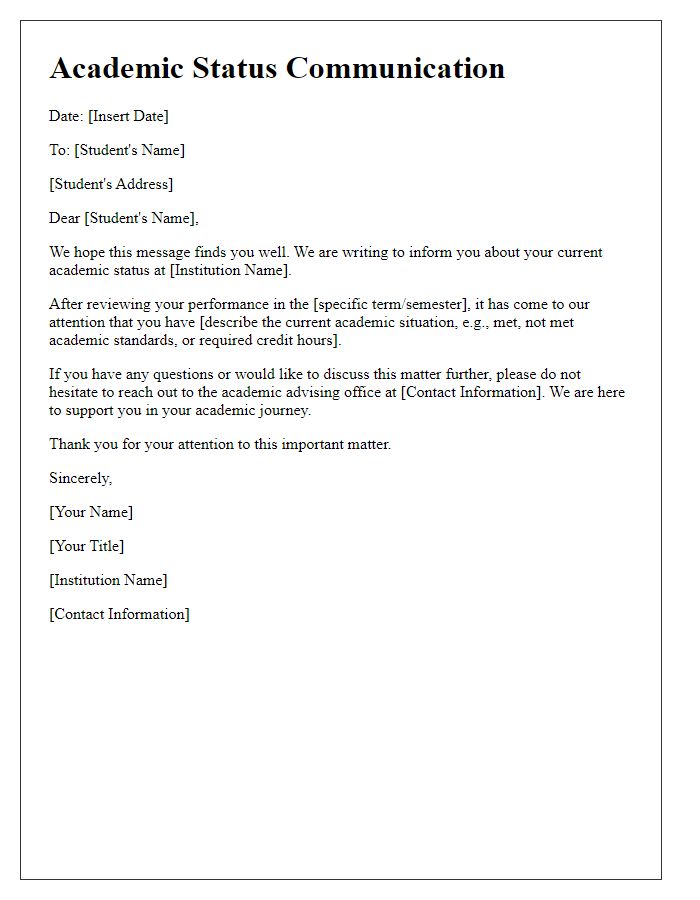

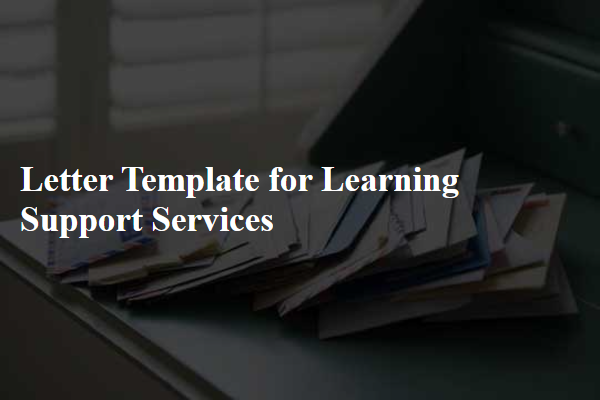
Comments